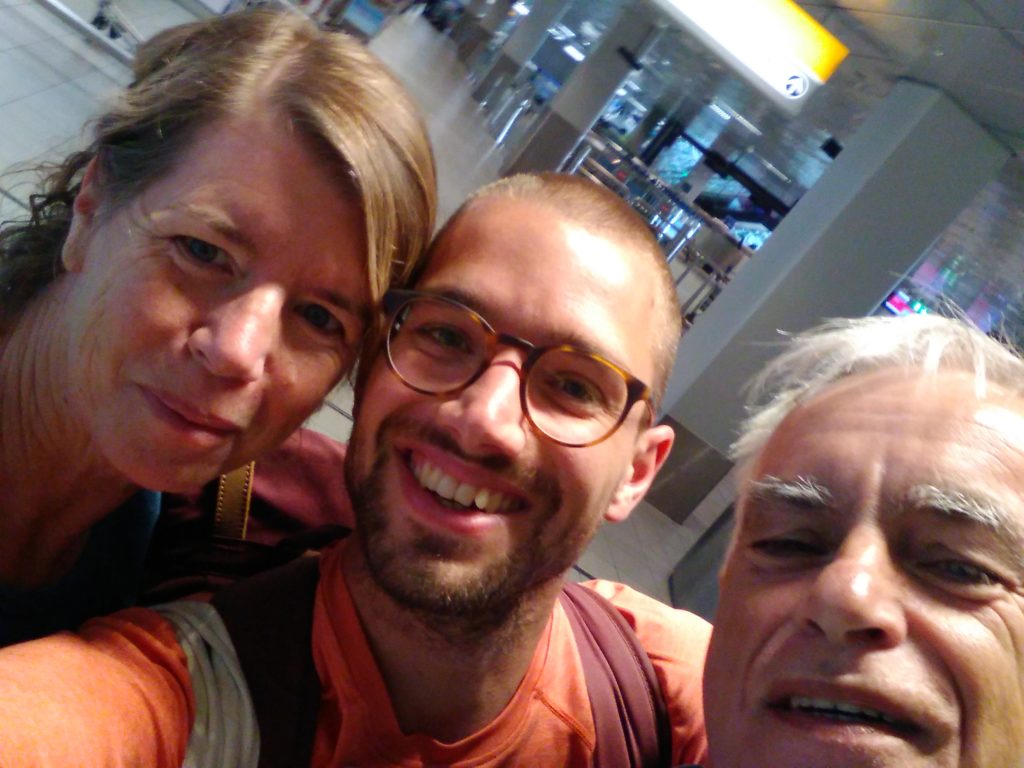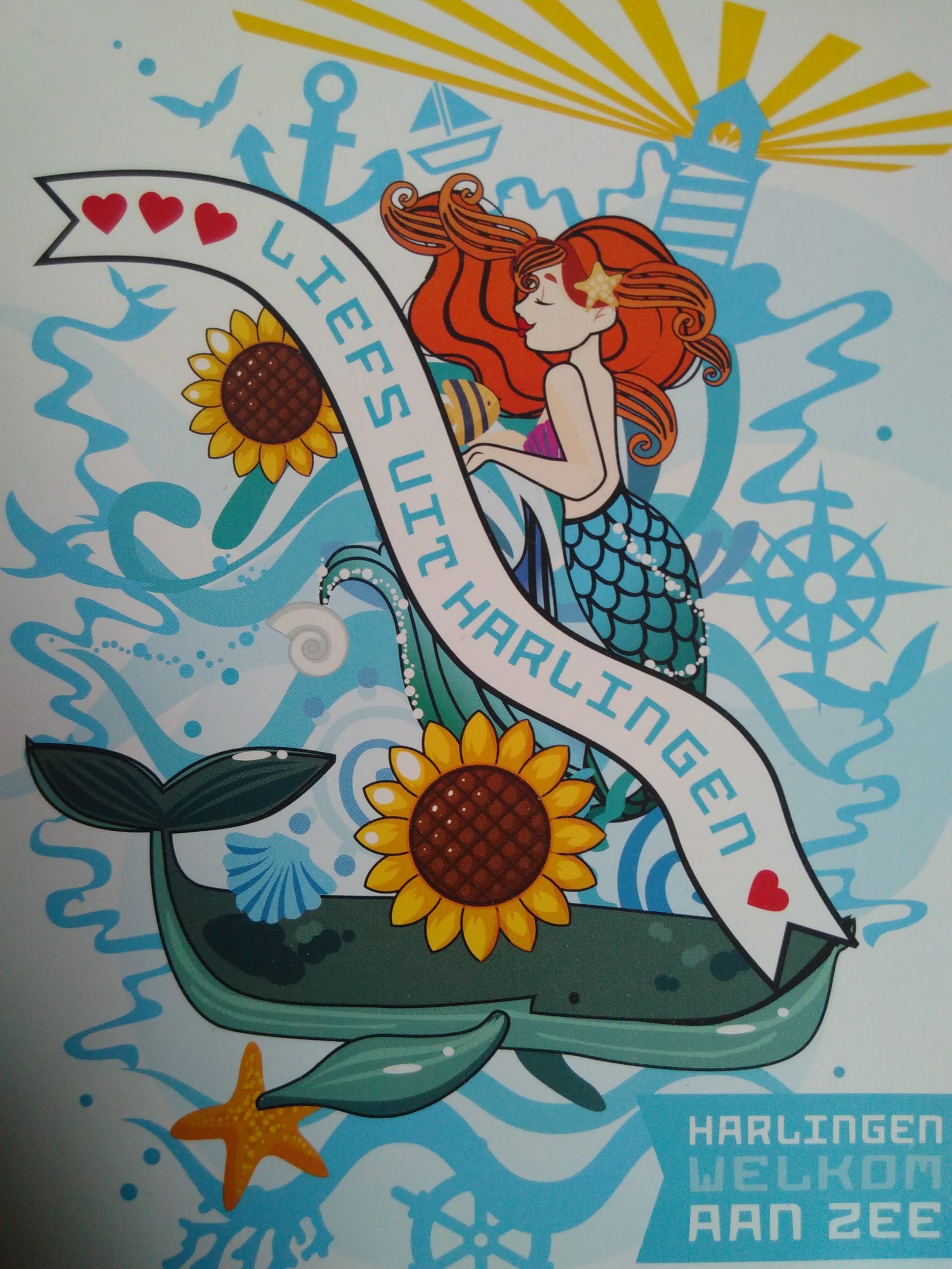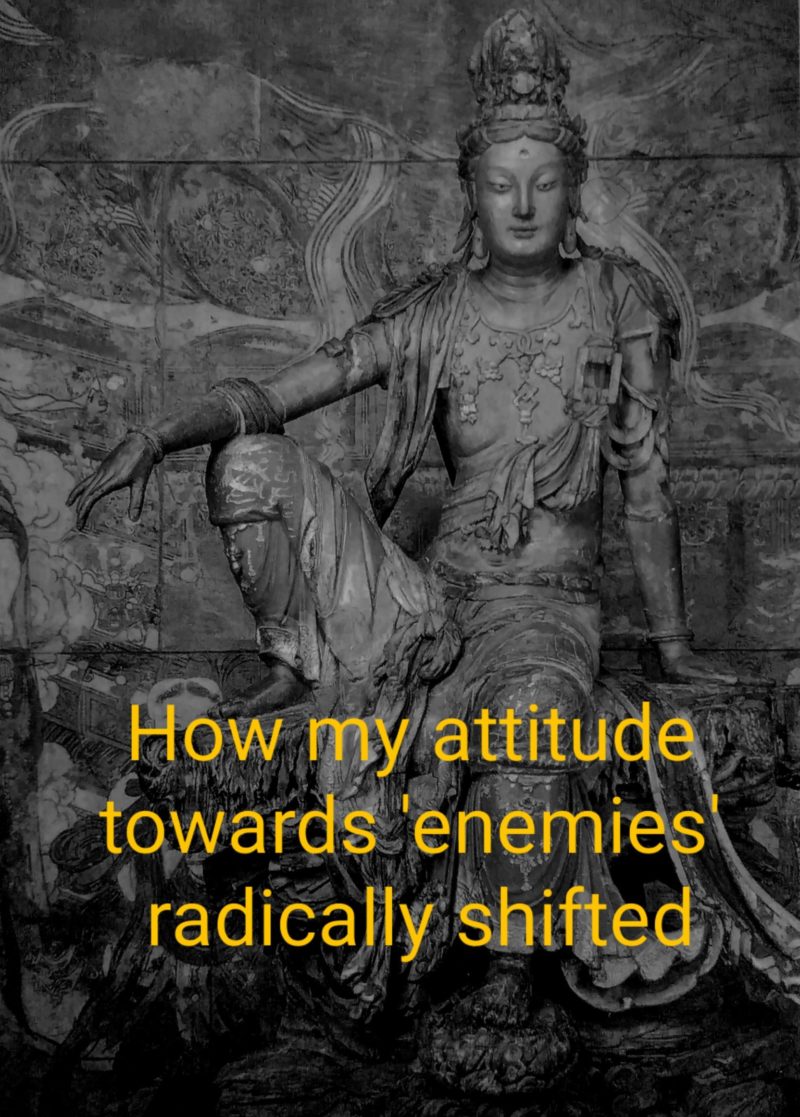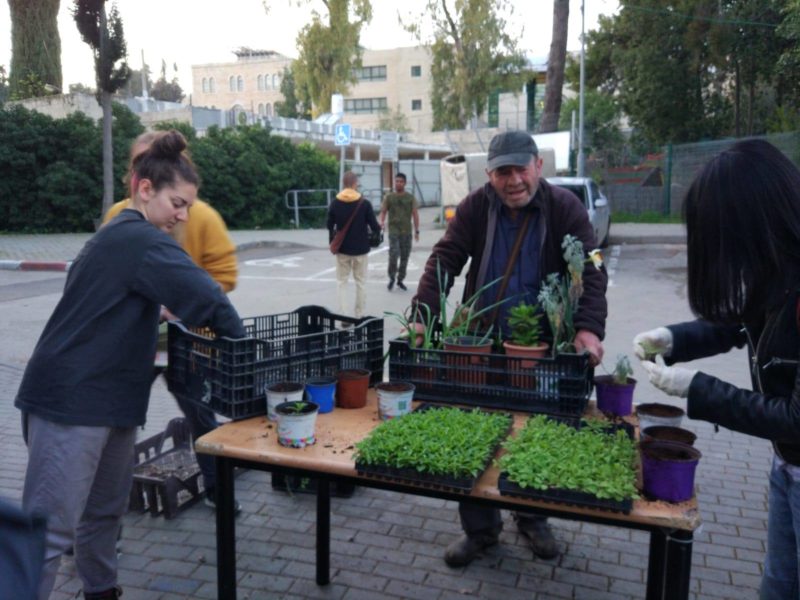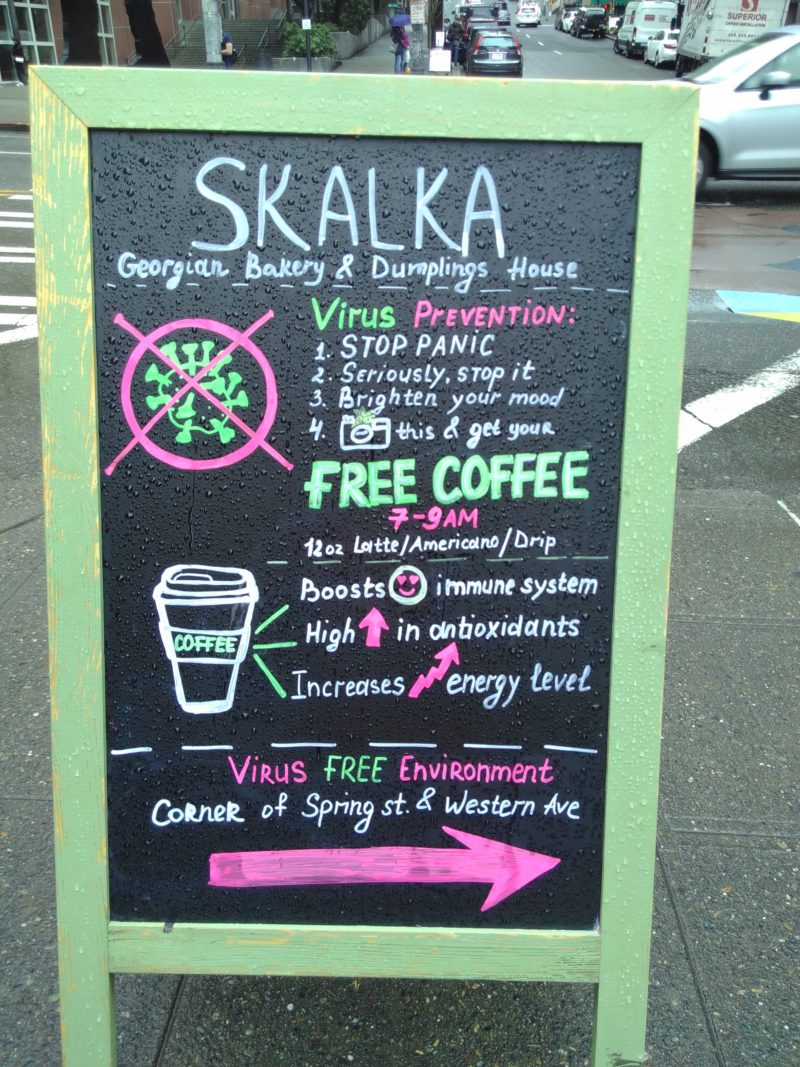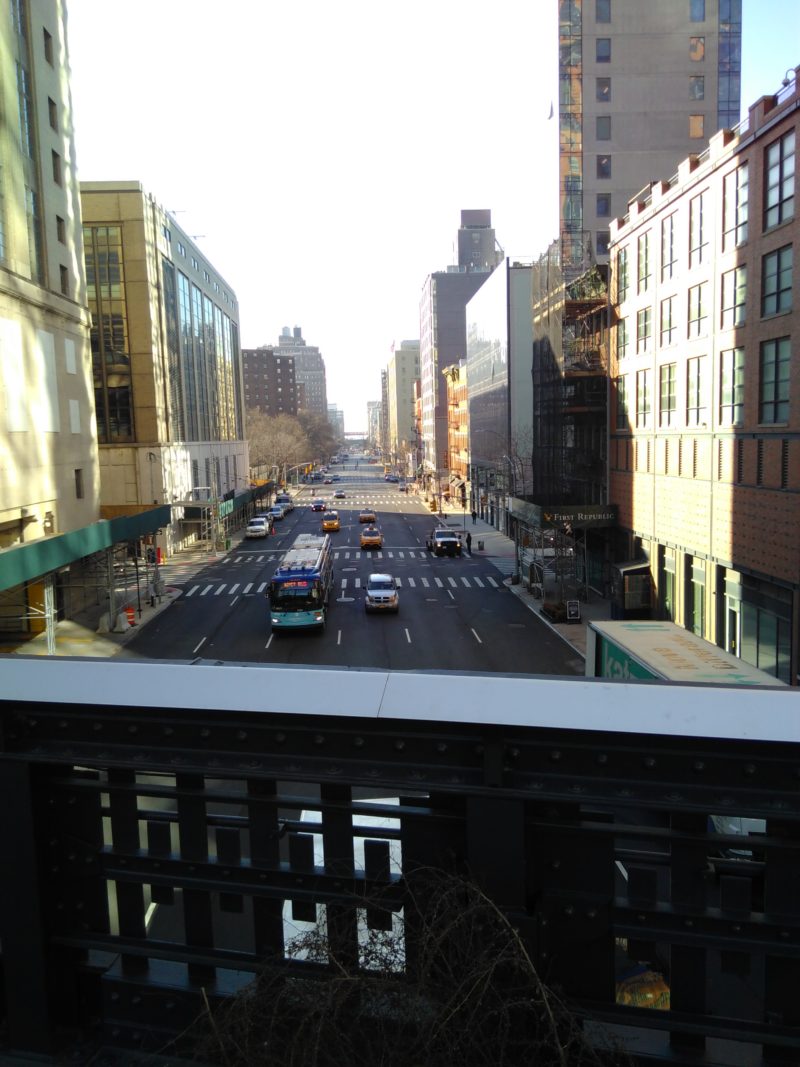We all lose our loved ones at some point in life. Grandparents pass away due to aging. Though oftentimes they might die because of illness. Certainly during these days of a pandemic. Any virus, by the way, does not only hit the elderly. Like many illnesses.
You can also continue to listen to this story as a Dharma-bite on my Soundcloud:
It can also be another situation leading to the death of someone close to us. Varying from car accidents to a drug overdose. From being shot by police or as a consequence of gang violence. Being killed in an armed conflict or drown in waters in an attempt to seek refuge.
Already from my own life, people I have been friends with or knew directly, I can tell about many whom are no longer alive. And I am highly aware of being fairly young – just 33/34 (depending on time-zone) at the moment of writing – and usually finding myself in relatively safe & well-favored situations.
Some of these people, like my maternal grandparents, came at the end of their lives when they were over 80 years old. However, many did not get to live that long. Because they took their own life way before, were hit by cancer, or an even more unfortunate chain of events that lead to their early death.
Vulnerability
In other words, life is extremely vulnerable. Many of us, including myself, go about our daily lives as if this is not the case. But it is. Our life, both yours and mine, could end next week, tomorrow or even today. Death simply comes without warning.
In Buddhist teachings, like in many other philosophical, religious and spiritual traditions, we are constantly reminded of this fact. They urge us to contemplate our relationship with death. Yet, even more so, to consider our relationship with life.
Realizing our vulnerability leads to questions like: How to care for those we love? For the people in our communities? Ultimately, for the world that sustains us, and all life that we share this planet with?
Love from and for our mother
Traditional buddhist teachings tell us we can start with the feeling of love and compassion that we received from our mother. After all, the texts point out, it was our mother that not only carried us for nine months or so and went through labor. After giving birth, she also took care of us day and night. Worrying constantly whether we are okay. Without this we would not have been alive. No matter what we do or where we go once we grow up, our mother always wants us to be safe, healthy and happy.
Of course, there are also many of us for whom our mother has been absent in life for all kinds of reasons. Or worse, has played a very damaging role. Contemplating the love from our mother is also not meant to ignore the possible important and caring role of fathers. Our mother is just given as an example.
The point is that there is at least one person in your life that took care of you and loved you. Someone for whom you, as a result, surely and naturally feel love & compassion. Like the love for a mother comes easily to many, you might experience such feelings for a grandmother, your father, or perhaps an uncle, a brother, a sister, or a good friend.
The example of a mother certainly works for me. My mother has a chronic disease. She might live well into old age with it. Yet, I can feel the vulnerability of her life directly. When I contemplate that, and think of everything she has done for me during my days as a child, up till this very day, I immediately sense a warm feeling in my heart. I start to smile. And feel tears of love. Just imagining her not to be part of my life is already causing some sadness.
I know very well that one day she will no longer be there. At least, not in a direct, physical sense. Nonetheless, I deeply wish she will be in my life for many more years. For many of us, losing our mother is the most painful loss in life.
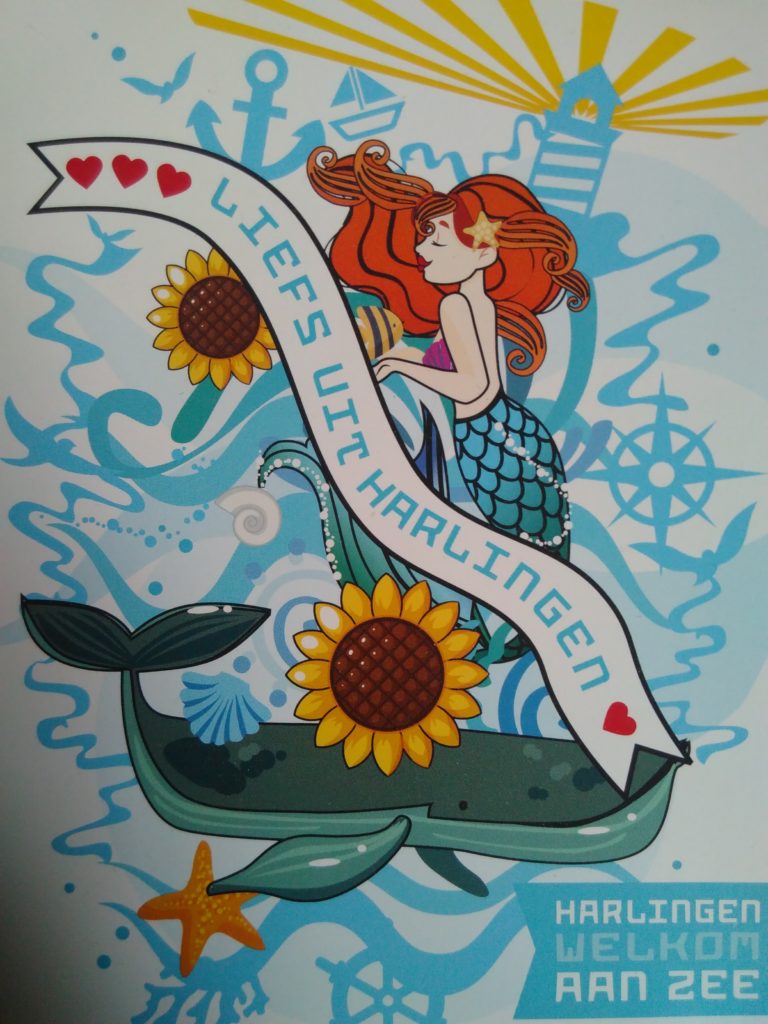
Extending our love & compassion
What if, the buddhist teachings wonder, we can cultivate that mother-like love and compassion for everyone? Starting with the people that we interact with in our daily life – our neighbours, colleagues, friends and family. But why would we stop there, Buddhist texts ask us? Do other human beings, including those we perceive as very different from ourselves, at a distance, or even as an ‘enemy’, not equally look for love and compassion? Just like you and me?
Many traditional buddhist teachings would point to the fact that all sentient beings have, at some point, been our mother. This is because we have reincarnated infinite amount of times. Nowadays not many people will embrace this idea of reincarnation. However, we do not need to accept this view. It is also sufficient, if you ask me, to recognize that every person has been given love & compassion by someone. And that person would equally feel a deep loss and be hurt when losing that caring person – whether it is a mother or anyone else.
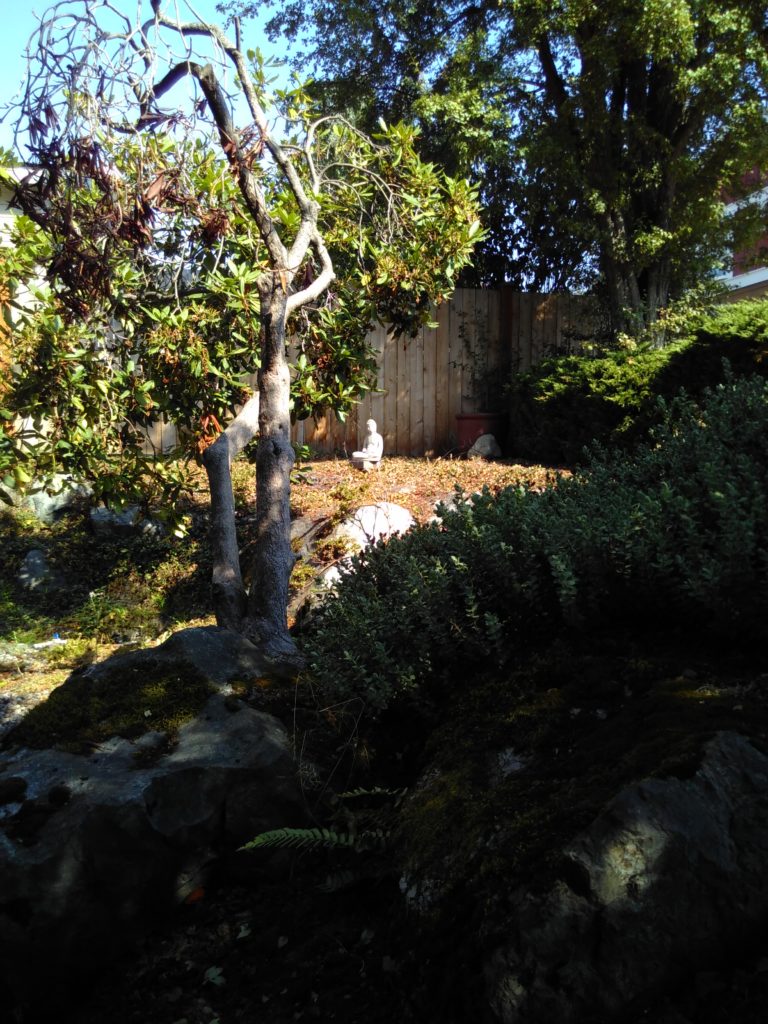
The above is not just true for all human beings. It is true for all animals, wild and domestic, with whom we share this world. It is easy to recognize if we pay attention. From the smallest of creatures to the largest, they are, just like you and me, capable of experiencing pain and seek happiness.
This is true for ants, butterflies, chicken, pigs, cows, elephants and all the birds in the sky. All of them have been nourished by a mother-figure from the very beginning. There is no reason to expect they would not just as well suffer when taken away from, or losing, this mother-figure. Or suffer when deprived of having connections of love and compassion.
For all kinds of reasons, we find this easy to understand when we are looking at documentaries. Or when we consider animals either close to us (e.g. dogs and cats) or in the wild (elephants, deer, lions). Yet, when we consider animals we eat, many of us seem to ignore this equality of them being able to suffer and have loving connections with life around them.
These days I can truly see and understand reasons why – feeling no (or hardly any) judgment towards people that have meat and fish on the menu. Yet, I can’t help but feel a sadness in my heart if I think about the life that was taken. Imagining young animals being snatched away from their mother, contemplating the suffering of creatures in captivity or being brought to slaughter, automatically brings me to tears.
We can even approach other life forms – plants, trees, flowers and so on – as being able to either flourish and feel happiness, or energy fading away and suffer. We might be reluctant to assign such experiences to these life forms. Yet, again, in order to see them like our mother we don’t have to accept that view. There is a reason, I would say, why we refer to our planet as ‘mother earth’. Because it is the earth that sustains us. And we start to understand and see more clearly how that requires all life to be able to flourish and form healthy ecosystems. If we want to continue to survive and thrive ourselves, we need to do so in balance with all life.
Collateral beauty in life and death
In sum, what if we would approach mother earth with all sentient beings with the same love & compassion that we have received from our mothers? With this feeling that we, by the very nature of our mind & heart, can give to humans, animals and other life forms? What if we live with the aspiration – known in Buddhism as bodhicitta – for all life to be cared for in such ways, and put this into practice in our daily lives?
How this looks like in practice might be very different for each and everyone of us. Simply because we live under other circumstances. Different culture & tradition, different language, different social environment, financial situation and so on. But I am sure our relationship with ourselves, those close to us, and beyond that, would feel as a strong loving & compassionate connection. Perhaps not identical, but similar to what we feel with our mother.
We might still lose people dear to us. We might still experience pain. Yet, we would also know, that their love & compassion continues to live on in ourselves and every living creature we connect with. Maybe it allows us to see the beauty in everyone and everything. Even death.
My mother always told me: no matter what you do or where you go, as long as you are truly happy. This is one of the many reasons why I deeply care for her. And it is in this way that I aspire to connect with you, and pass this wisdom on. I will fail at times, but I will do my best to care for you and all life. With love & compassion. Like a mother.
It is also to my mother that I dedicate this article and wish to close with words in our mother tongue, Frisian: Ik hâld fan mem.
